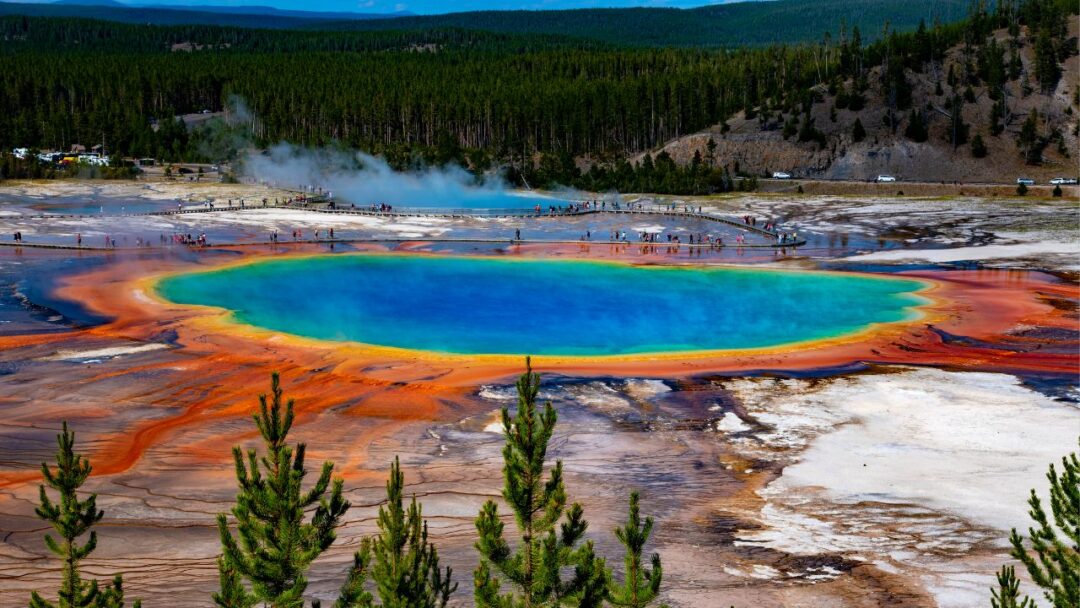Table of Contents

Introduction
Let’s Find Out Nurturing Mental Well-being through Nature’s Surprising Power. Finding solace and rejuvenation in today’s fast-paced and technologically-driven world has become increasingly important for maintaining our mental well-being. Surprisingly, the key to regaining balance and inner peace is found in nature’s beauty and wonders. This article delves into nature’s remarkable ability to foster mental well-being, emphasizing its importance to the environment and role in the Earth’s ecosystem.
- The Healing Power of Nature:
- Nature as a stress reliever: Spending time in nature has been proven to reduce stress levels, lower blood pressure, and alleviate anxiety and depression.
- Immersion in green spaces: The presence of green spaces, such as parks and gardens, has a positive impact on mental health and can enhance mood and cognitive function.
- Benefits of sunlight exposure: Sunlight triggers the release of serotonin, a hormone associated with mood regulation, contributing to improved mental well-being.
- Connection with the Natural World:
- Biophilia hypothesis: Humans have an innate affinity for nature, which stems from our evolutionary connection to the environment.
- Reconnecting with nature: Engaging in activities like hiking, gardening, or even simply observing natural landscapes can strengthen our connection to the natural world and foster a sense of awe and wonder.
- Therapeutic Effects of Nature:
- Ecotherapy: Nature-based therapies, such as horticultural therapy and wilderness therapy, have been shown to be effective in treating mental health conditions.
- Nature and mindfulness: Incorporating mindfulness practices in natural settings enhances their effectiveness, promoting relaxation, self-reflection, and mental clarity.
- Benefits for the Environment:
- Conservation and preservation: Cultivating a deep connection with nature fosters a sense of responsibility towards the environment, encouraging sustainable practices and conservation efforts.
- Biodiversity and ecosystem services: Protecting natural habitats ensures the preservation of biodiversity and the vital ecosystem services they provide, ultimately benefiting human well-being.
- Nature’s Role in the Ecosystem:
- Oxygen production: Through photosynthesis, plants produce oxygen, essential for supporting life on Earth.
- Carbon sequestration: Trees and vegetation absorb carbon dioxide, mitigating the effects of climate change.
- Habitat and food sources: Natural ecosystems provide habitats for wildlife and serve as a source of food and resources for countless species.
How does nature contribute to mental well-being?
Nature has a profound effect on mental health. Spending time in nature reduces stress, improves mood, cognitive function, and overall psychological well-being. Nature’s sights, sounds, and smells have a calming and revitalizing effect on the mind.
What are some specific ways to connect with nature for better mental health?
There are numerous ways to connect with nature for better mental health. Going for nature walks or hikes, practicing mindfulness in natural settings, gardening or tending to plants, participating in outdoor exercises like yoga or tai chi, and simply spending time in green spaces like parks or forests are some ideas.
Can nature help with reducing anxiety and depression?
Yes, nature has been shown to help reduce anxiety and depression symptoms. According to research, exposure to nature can lower cortisol, the stress hormone, while increasing serotonin and dopamine, neurotransmitters associated with happiness and well-being.
How does spending time in nature benefit our overall mental health?
Spending time in nature has numerous mental health benefits. It can improve focus and attention, boost self-esteem, alleviate symptoms of attention deficit disorders, and promote a sense of calm and relaxation. Nature acts as a natural stress reliever, restoring and revitalizing our mental faculties.
Are there any specific nature-based activities that are recommended for mental well-being?
Forest bathing, birdwatching, nature photography, outdoor meditation, or simply sitting in a park can all be extremely beneficial to one’s mental health. These activities allow us to fully immerse ourselves in nature’s beauty and experience its calming and therapeutic effects.
Can nature-based therapies or ecotherapy be helpful for mental health?
Yes, nature-based therapies, such as ecotherapy, have been shown to improve mental health. Gardening, wilderness expeditions, and animal-assisted therapy are examples of structured activities that take place in natural settings. They can help with stress relief, emotional healing, and personal development.
How can I incorporate nature into my daily routine for mental well-being?
There are numerous ways to incorporate nature into your daily activities. Take short walks in nearby parks or green spaces, eat outside, bring indoor plants into your living space, open windows to let in fresh air and natural light, or create a small garden or balcony oasis to begin.
Are there any precautions or considerations to keep in mind while enjoying nature for mental well-being?
While enjoying nature, it is critical to prioritize safety. Be aware of your surroundings, adhere to trail guidelines, stay hydrated, protect yourself from extreme weather, and be aware of any potential allergies or hazards. Furthermore, always respect the environment and leave natural areas in the same condition that you found them.
Can nature-based activities be beneficial for children’s mental health too?
Absolutely. Nature-based activities have been shown to improve children’s mental health. Spending time in nature can help them develop cognitively, reduce symptoms of attention disorders, increase creativity, and improve their emotional well-being. It also promotes respect for the natural world.
How long should I spend in nature to experience the mental health benefits?
Even brief periods of time spent in nature can have a positive impact on one’s mental health. According to research, spending at least 20-30 minutes per day in nature can significantly improve mood, reduce stress, and improve overall mental health. Any amount of time spent in nature, however, can be beneficial.
Conclusion
Nature possesses extraordinary abilities to nurture our mental well-being, providing respite from the stresses of modern life and fostering a sense of peace and connectedness. As we embrace nature’s healing power, we must recognize its importance for the environment and its critical role in sustaining the Earth’s ecosystem. By cherishing and protecting nature, we not only protect our mental health but also help to preserve our planet for future generations.
The Amazing Lives of Bees: Pollinators and Beyond : NEXT POST




